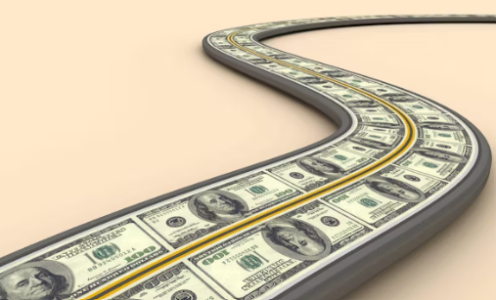Are you eligible for the new $1,000 payment making headlines across the US?
- Replies 0
A new wave of $1,000 payments is set to reach more than 600,000 Americans, and the news has sparked plenty of attention.
The program is not a federal stimulus, but it will still mean a big boost for households that qualify.
While the amount is lower compared to recent years, it remains a welcome check during a time of rising costs.
If you are wondering who qualifies, when the money will arrive, and why this program exists, here is the breakdown.
This isn’t a new federal stimulus or a nationwide benefit. The $1,000 payments are part of Alaska’s Permanent Fund Dividend (PFD) program—a unique initiative that’s been putting money directly into Alaskans’ pockets for decades.
If you’re an Alaska resident, you probably know the drill, but for the rest of us, here’s a quick primer: the PFD is funded by the state’s oil revenues, and every year, eligible residents receive a dividend check. It’s Alaska’s way of sharing the wealth from its natural resources.
This year’s payout is $1,000 per eligible resident—a noticeable dip from last year’s $1,702, and a far cry from the record-setting $3,284 in 2022.

Also read: This grandmother just hit a $150,000 Powerball jackpot thanks to AI—what she did next will surprise you
Residency: You must have been an Alaska resident for at least one full calendar year.
No Other Residency Claims: You can’t claim residency in another state or country.
Absence Rules: If you were out of Alaska for more than 180 days, you need to have an allowable absence. This includes things like:
Children and Dependents: Kids can receive the PFD, but a sponsor (usually a parent or guardian) must file on their behalf before the dividend is issued.
Criminal Convictions: If you were incarcerated or sentenced for a felony during the qualifying year, you’re ineligible. The same goes for certain misdemeanor convictions, especially if you have a history of prior offenses.
Also read: Shoppers could get payouts from Amazon’s $2.5B settlement—are you one of them?
The PFD has seen its ups and downs, reflecting Alaska’s fluctuating oil revenues and political debates. Here’s a quick snapshot of recent payouts:
Also read: Automatic $1,000 energy bill credit hitting bank accounts on November 15—see if you qualify
You might be thinking, “I don’t live in Alaska, so why should I care?” The PFD is a fascinating example of how a state can use its natural resources to directly benefit its residents.
It’s also a reminder to keep an eye on local and state programs—sometimes, the best benefits aren’t coming from Washington, DC, but from your own backyard.
For those outside Alaska, it’s a good time to check in on any state or local benefits you might be missing.
Many states offer property tax rebates, energy assistance, or other programs that can help stretch your budget.
And if you have friends or family in Alaska, now’s the time to give them a call and see how they’re planning to use their PFD check!
Read next:

Are you an Alaskan who’s received the PFD in the past? Do you think other states should follow Alaska’s lead and share resource wealth with residents? Or maybe you have tips for making the most of a windfall, big or small.
The program is not a federal stimulus, but it will still mean a big boost for households that qualify.
While the amount is lower compared to recent years, it remains a welcome check during a time of rising costs.
If you are wondering who qualifies, when the money will arrive, and why this program exists, here is the breakdown.
This isn’t a new federal stimulus or a nationwide benefit. The $1,000 payments are part of Alaska’s Permanent Fund Dividend (PFD) program—a unique initiative that’s been putting money directly into Alaskans’ pockets for decades.
If you’re an Alaska resident, you probably know the drill, but for the rest of us, here’s a quick primer: the PFD is funded by the state’s oil revenues, and every year, eligible residents receive a dividend check. It’s Alaska’s way of sharing the wealth from its natural resources.
This year’s payout is $1,000 per eligible resident—a noticeable dip from last year’s $1,702, and a far cry from the record-setting $3,284 in 2022.

Still, in a year when every dollar counts, it’s a welcome boost for many households. Image source: Getty Images / Unsplash
When Will the Money Arrive?
Timing is everything, especially when it comes to benefit payments. Here’s what you need to know:- October 2: If you filed your PFD application electronically and opted for direct deposit, your $1,000 should hit your account on this date.
- October 23: If your application status is “Eligible-Not Paid” as of October 13, you’ll see your payment later in the month.
Also read: This grandmother just hit a $150,000 Powerball jackpot thanks to AI—what she did next will surprise you
Who’s Eligible for the Alaska PFD?
Eligibility for the PFD is a bit more involved than just living in Alaska. Here’s a quick checklist:Residency: You must have been an Alaska resident for at least one full calendar year.
No Other Residency Claims: You can’t claim residency in another state or country.
Absence Rules: If you were out of Alaska for more than 180 days, you need to have an allowable absence. This includes things like:
- Full-time secondary or post-secondary education
- Active duty military service
- Serving as a member of Congress
- Receiving medical treatment
- Settling the estate of a deceased family member
Children and Dependents: Kids can receive the PFD, but a sponsor (usually a parent or guardian) must file on their behalf before the dividend is issued.
Criminal Convictions: If you were incarcerated or sentenced for a felony during the qualifying year, you’re ineligible. The same goes for certain misdemeanor convictions, especially if you have a history of prior offenses.
Also read: Shoppers could get payouts from Amazon’s $2.5B settlement—are you one of them?
The PFD has seen its ups and downs, reflecting Alaska’s fluctuating oil revenues and political debates. Here’s a quick snapshot of recent payouts:
- 2024: $1,702
- 2023: $1,312
- 2022: $3,284 (the highest ever!)
- 2021: $1,114
- 2020: $992
- 2019: $1,606
- 2018: $1,600
Also read: Automatic $1,000 energy bill credit hitting bank accounts on November 15—see if you qualify
You might be thinking, “I don’t live in Alaska, so why should I care?” The PFD is a fascinating example of how a state can use its natural resources to directly benefit its residents.
It’s also a reminder to keep an eye on local and state programs—sometimes, the best benefits aren’t coming from Washington, DC, but from your own backyard.
For those outside Alaska, it’s a good time to check in on any state or local benefits you might be missing.
Many states offer property tax rebates, energy assistance, or other programs that can help stretch your budget.
And if you have friends or family in Alaska, now’s the time to give them a call and see how they’re planning to use their PFD check!
Read next:
- Reminder: Some Social Security beneficiaries are getting two payments this week
- Don’t miss out: Score a $300 Chase bonus with just $5.55 a day if you act by October 15
Key Takeaways
- Over 600,000 Alaskans will receive a $1,000 benefit payment this year, which is lower than last year's amount of $1,702.
- Payments will be made on 2 October for eligible applicants who filed electronically and opted for direct deposit, with a second batch sent out on 23 October for those with “Eligible-Not Paid” status.
- To be eligible for the payment, residents must have lived in Alaska for at least one calendar year, not claimed residency elsewhere, and meet strict requirements relating to absences, criminal convictions, and timely application.
- The Alaska Permanent Fund Dividend (PFD) program, started in 1980, delivers varying yearly payments to residents, with the highest ever payout being $3,284 in 2022.






